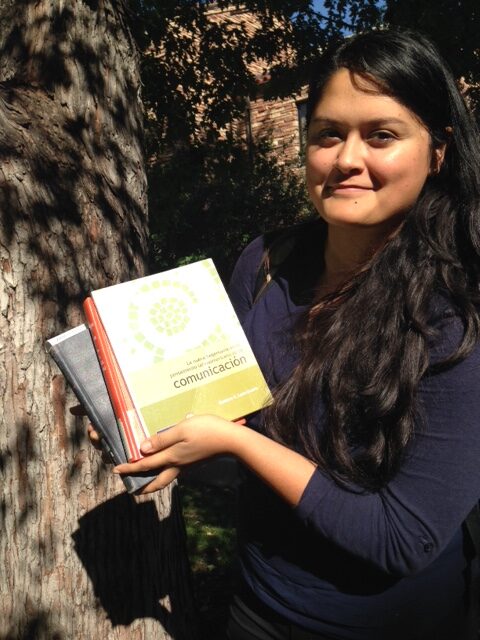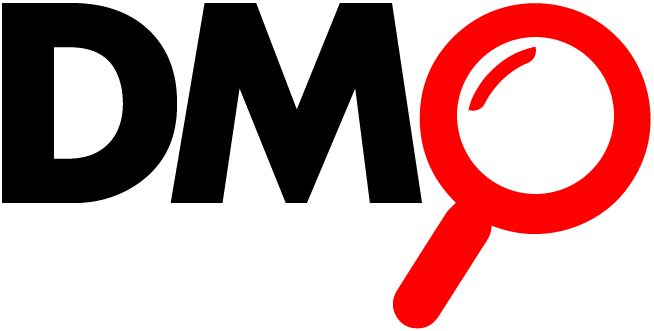DMP Podcast: Episode 4
In this episode, DMP collaborator Juan Diaz-Mercado interviews Loyola Marymount University lecturer and University of Colorado at Boulder doctoral candidate, Prof. Rebecca Avalos about her research on Trump’s “Make America Great Again” racial project, with a focus specifically on Latinx communities, racial logics, nationalism, migration, and borders. Avalos describes how historical racial scripts aggravate laws and how Latinx subjects shift within these power matrices as embodiments of illegalities. Avalos argues that brown bodies often represent the latest trend of capitalism and tokenism as power shapes knowledge. She elaborates upon how politics and racialized rhetoric can dar animo to create the conditions under which rights can be stripped away from Others as a reaction to the browning of the U.S. to attempt to preserve white futurity and centrality. Prof. Avalos discusses why context, relationships, and power dynamics matter in the practice of calling out to call in others when confronting micro/aggressions.

Rebecca Avalos is a Full Lecturer, scholar and activist in the Department of Communication Studies at Loyola Marymount University, Los Angeles where she teaches on the intersection of rhetoric and culture. Focusing on the meeting point of critical legal studies, racial formation, Latinx studies, white supremacy and presidential rhetoric, Rebecca is currently completing her Ph.D. at the University of Colorado Boulder in rhetoric and culture. Before her four years of residence at the University of Colorado Boulder, Rebecca received her M.A. in Communication Studies with a focus on social movement rhetorical theory from CSUF and holds a B.A. in Communication Studies and a B.A. in Chicana/o, Latina/o Studies from CSULB. Raised in Los Angeles, California, Rebecca shares a deep and unwavering commitment to the pursuit of justice. Her latest publication is a chapter in the Latina/o/x Communication Studies: Theory, Method, and Practice anthology entitled, “Towards a Borderland Oratory: Within, Against, and Beyond Con Carácter, Ánimo, Y Grito” (October 2019). Currently for her primary thread of research, this coming year, Rebecca is focusing on the completion of her doctoral dissertation titled, “Matters of the Law in and Beyond Donald J. Trump’s “Make America Great Again” Racial Project.
Prof. Avalos asserts that it is vital to note, as Kendi (2019) argues in How to Be an AntiRacist, ‘microaggression’ is not the true capture of what occurs in those fleeing and so personal moments of un/concious interaction. Ultimately, these small aggressions are instantiations of abuse. We are talking about abuse in every meaning and unfolding of that word. If we take on this perspective, extend our view as such, we arrive to a place of feeling and truly seeing what so many institutions acquiesce to and allow.
Prof. Avalos has curated a specific literature list on microaggressions that she has personally read, assigned, and found foundational to the topical study and experiential prevalence of microaggressions:
- Balsam, K. F., Molina, Y., Beadnell, B., Simoni, J., & Walters, K.
(2011). Measuring multiple minority stress: the LGBT People of Color
Microaggressions Scale. Cultural Diversity and Ethnic Minority Psychology, 17(2), 163. - Huber, L. P., Lopez, C. B., Malagon, M. C., Velez, V., & Solorzano, D.
G. (2008). Getting beyond the ‘symptom,’acknowledging the ‘disease’: Theorizing racist nativism. Contemporary Justice Review, 11(1), 39-51. - McCabe, J. (2009). Racial and gender microaggressions on a
predominantly-White campus: Experiences of Black, Latina/o and White undergraduates. Race, Gender & Class, 133-151. - Nadal, K. L., Rivera, D. P., Corpus, J. H., & Sue, D. W. (2010). Sexual
orientation and transgender microaggressions. Microaggressions and
marginality: Manifestation, dynamics, and impact, 217-240. - Pérez Huber, L., & Solorzano, D. G. (2015). Racial microaggressions as a
tool for critical race research. Race Ethnicity and Education, 18(3),
297-320. - Pérez Huber, L., & Solórzano, D. G. (2015). Racial microaggressions:
What they are, what they are not, and why they matter. Latino Policy
and Issues Brief, 30, 1-4. - Rendon, L. I. (1994). Validating culturally diverse students: Toward a new model of learning and student development. Innovative higher education, 19(1), 33-51.
- Smith, W. A., Yosso, T. J., & Solórzano, D. G. (2011). Challenging
racial battle fatigue on historically White campuses: A critical race
examination of race-related stress. In Covert racism (pp. 211-237). Brill. - Solórzano, D. G. (1998). Critical race theory, race and gender
microaggressions, and the experience of Chicana and Chicano scholars. International journal of qualitative studies in education, 11(1), 121-136. - Sólorzano, D. G., Villalpando, O., & Oseguera, L. (2005). Educational
inequities and Latina/o undergraduate students in the United States: A critical race analysis of their educational progress. Journal of Hispanic
Higher Education, 4(3), 272-294. - Solórzano, D. G., & Villalpando, O. (1998). Critical race theory,
marginality, and the experience of students of color in higher education. Sociology of education: Emerging perspectives, 21, 211-222. - Smith, W. A., Yosso, T. J., & Solórzano, D. G. (2007). Racial primes and
Black misandry on historically White campuses: Toward critical race
accountability in educational administration. Educational
Administration Quarterly, 43(5), 559-585. - Solorzano, D. G. (1992). An exploratory analysis of the effects of race,
class, and gender on student and parent mobility aspirations. The
Journal of Negro Education, 61(1), 30-44. - Solorzano, D., Ceja, M., & Yosso, T. (2000). Critical race theory,
racial microaggressions, and campus racial climate: The experiences of African American college students. Journal of Negro education, 60-73. - Solorzano, D. G., & Yosso, T. J. (2000). Maintaining social justice
hopes within academic realities: A Freirean approach to critical race/LatCrit pedagogy. Denv. UL Rev., 78, 595. - Solorzano, D. G., & Yosso, T. J. (2001). From racial stereotyping and
deficit discourse toward a critical race theory in teacher education. Multicultural education, 9(1), 2. - Sue, D. W., Bucceri, J., Lin, A. I., Nadal, K. L., & Torino, G. C.
(2007). Racial microaggressions and the Asian American experience. Cultural diversity and ethnic minority psychology, 13(1), 72. - Valencia, R. R., & Solórzano, D. G. (1997). Contemporary deficit
thinking. The evolution of deficit thinking: Educational thought and
practice, 160-210. - Wong, G., Derthick, A. O., David, E. J. R., Saw, A., & Okazaki, S.
(2014). The what, the why, and the how: A review of racial microaggressions research in psychology. Race and social problems, 6(2), 181-200. - Yosso*, T. J. (2005). Whose culture has capital? A critical race theory
discussion of community cultural wealth. Race ethnicity and education, 8(1), 69-91. - Yosso, T. J., & Burciaga, R. (2016). Reclaiming our histories, recovering community cultural wealth. Center for Critical Race Studies at UCLA Research Brief, 5.
- Yosso, T., Smith, W., Ceja, M., & Solórzano, D. (2009). Critical race
theory, racial microaggressions, and campus racial climate for Latina/o
undergraduates. Harvard Educational Review, 79(4), 659-691. - Yosso, T. J., & Solórzano, D. G. (2006). Leaks in the Chicana and
Chicano Educational Pipeline. Latino Policy & Issues Brief. Number
13. UCLA Chicano Studies Research Center (NJ1).
